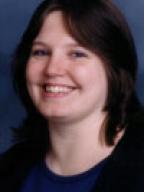CSUN Launches New Department of Criminology and Justice Studies
The meaning of justice in the context of U.S. and global crime and criminal justice institutions is a core focus of California State University, Northridge’s newest academic department, the Department of Criminology and Justice Studies, which launches its new major this fall.
More than 320 students have signed up to join the department’s inaugural class of majors who will explore a practical and social scientific understanding of America’s criminal justice system, as well as examining criminal justice practices around the world.

Vickie Jensen
“A deliberate choice was made when we created this department,” said Vickie Jensen, acting chair of the new department. “Not only are we looking at criminology and the institutions that address crime, but also justice in a broader sense. Sometimes those concepts are aligned, and sometimes those concepts appear to be at odds with one another. Justice is a broader term that encompasses how we — whether in law enforcement, the courts or as members of the community — contribute to and shape a just society. Criminal justice is just a starting place for that conversation.”
“Several agencies, such as LAPD and the LA City Attorney’s office, are embracing the evolution of criminal justice to a more just and broader perspective,” Jensen said. “It is our hope that CSUN and its students will be an active and vital part in that conversation, and that our future graduates will have an impact on what a just society looks like in years to come.”
Vice Provost Stella Theodoulou helped shepherd the department’s creation when she was dean of the College of Social and Behavioral Sciences.
“The new major in criminology and justice studies is an example of the commitment of the College of Social and Behavioral Sciences to its strategic priority of designing curriculum that not only prepares students to meet the needs and challenges of the region and urban America, but also provides them with areas of study that are innovative and skills-based that enhance their ability to think critically,” Theodoulou said.
The department is drawing its faculty from disciplines across the campus and will be housed in the College of Social and Behavioral Sciences. Current and retired members of local law enforcement agencies, representatives from the Los Angeles City Attorney’s Office — including its Community Justice Initiative — and the Los Angeles District Attorney’s Office, as well as advocates for criminal justice reform and victims’ rights, have agreed to become active contributors to the new program. Some have agreed to either teach or lecture to classes, and others have agreed to serve in an advisory capacity to the department as it evolves.
“The goal is to have a variety of voices involved, not just those from law enforcement,” Jensen said. “One critical piece in the direction of the program is ensuring that the community, in all its diversity, is represented. It is important for our students to learn to think critically and to listen to multiple voices from our communities.”
The department will include courses that address a wide variety of crime and justice issues, including understanding diversity and inequality as manifested in the criminal justice system locally, nationally and globally; the impact of crime on individuals, communities and societies; the understanding of both juvenile delinquency and the system of juvenile justice; patterns and trends in incarceration rates, the climate and culture of correctional facilities, and gender and diversity issues in corrections; domestic violence; white-collar crime; and a focus on women as victims and perpetrators of crime, as well as how gender impacts men’s experiences with offending and victimization.
Bruce Zucker, who spent more than 20 years teaching business law in CSUN’s David Nazarian College of Business and Economics, is among the faculty who will make up the new department. Zucker, who practiced criminal law as a defense attorney specializing in appeals, parole and white-collar crime, said he was excited to be part of the team that developed the department’s curriculum and focus, in addition to being a founding faculty member.
“There’s a quote from ‘Crime and Punishment’ that I always share with my students. To paraphrase the quote, ‘A civilization is measured by the way it treats its prisoners,’” he said of the classic novel by Fyodor Dostoyevsky. “All participants in the criminal justice system — from judges to prosecutors, defense attorneys, jailers, parole officers and police officers — must treat people as human beings, with dignity and respect, no matter their background, no matter what they did or what they are accused or convicted of. That reflects on all of us as a society. If they, [the future students], learn that, then we will have done our jobs.”

 experience
experience